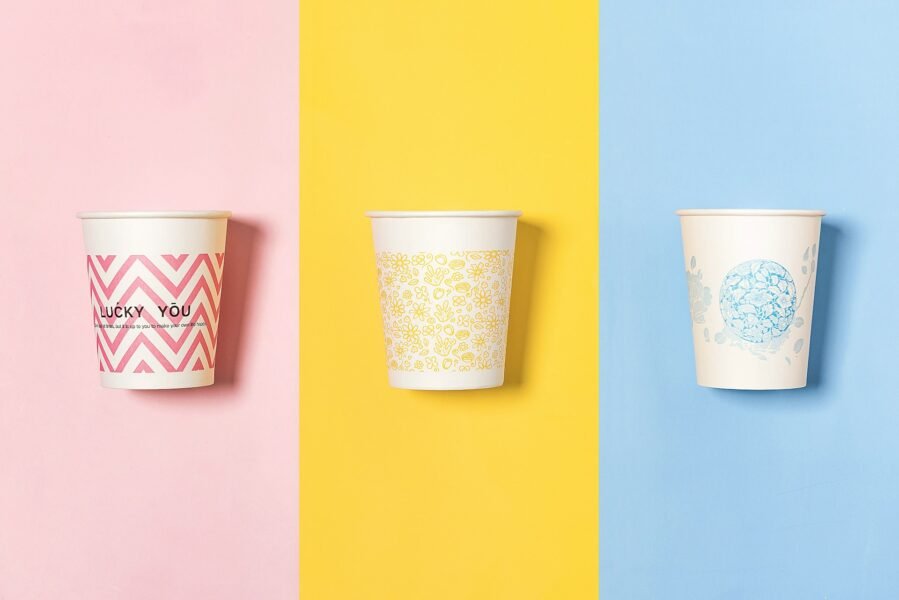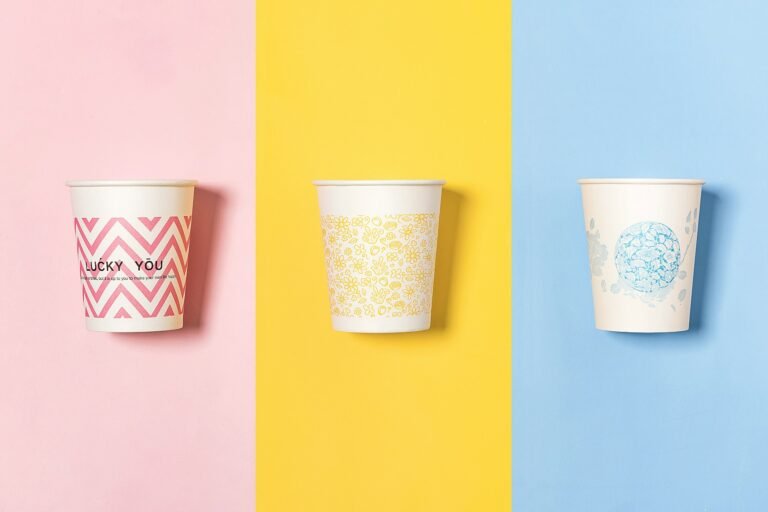
Personalised paper cups have been part of the sustainable tableware landscape for several decades, evolving alongside growing environmental awareness and innovations in disposable packaging. They originated in the early 20th century, when they were first developed as a hygienic alternative to shared metal or glass drinking vessels. However, they did not become a sustainable product category until much later, when society began to address the ecological impact of single-use plastics and non-recyclable materials.
Sustainability concept introduced to public
The concept of sustainability in tableware gained prominence during the 1980s and 1990s, when recycling programmes and environmental policies became more widespread. During this period, paper cups, already well-established in the food service industry, began to be seen as a more eco-friendly option than plastic or polystyrene cups. Manufacturers started to improve production methods by introducing responsibly sourced paper and reducing the use of harmful coatings. A key milestone in their sustainable evolution was the emergence of biodegradable and compostable linings, which are often made from plant-based materials such as polylactic acid (PLA).
Role of sustainable cups at early 2000s
Custom paper cups became an integral part of this movement when businesses and event organisers recognised that environmentally responsible products could also serve as powerful branding tools. By the early 2000s, festivals, cafés and corporate events were increasingly adopting custom paper cups to enhance their identity and communicate their commitment to sustainability. The visual customisation of recyclable or compostable cups transformed them into symbols of eco-conscious marketing, blending functionality with environmental values.
Modern paper cups
Technological advancements in the last two decades have further strengthened the sustainable profile of custom paper cups. The development of water-based coatings, improved fibre recycling processes and certifications such as FSC (Forest Stewardship Council) now enable paper cups to be produced with minimal environmental impact. Modern printing technologies now allow for customisation using non-toxic, water-based inks, ensuring that branding does not compromise the recyclability or compostability of the cups.
Today, custom paper cups have become a staple of sustainable tableware in commercial and event settings. They offer a practical solution that balances branding, convenience and environmental responsibility. Their continued evolution reflects the broader shift towards the principles of the circular economy, where materials are designed for reuse, recycling or natural decomposition.





